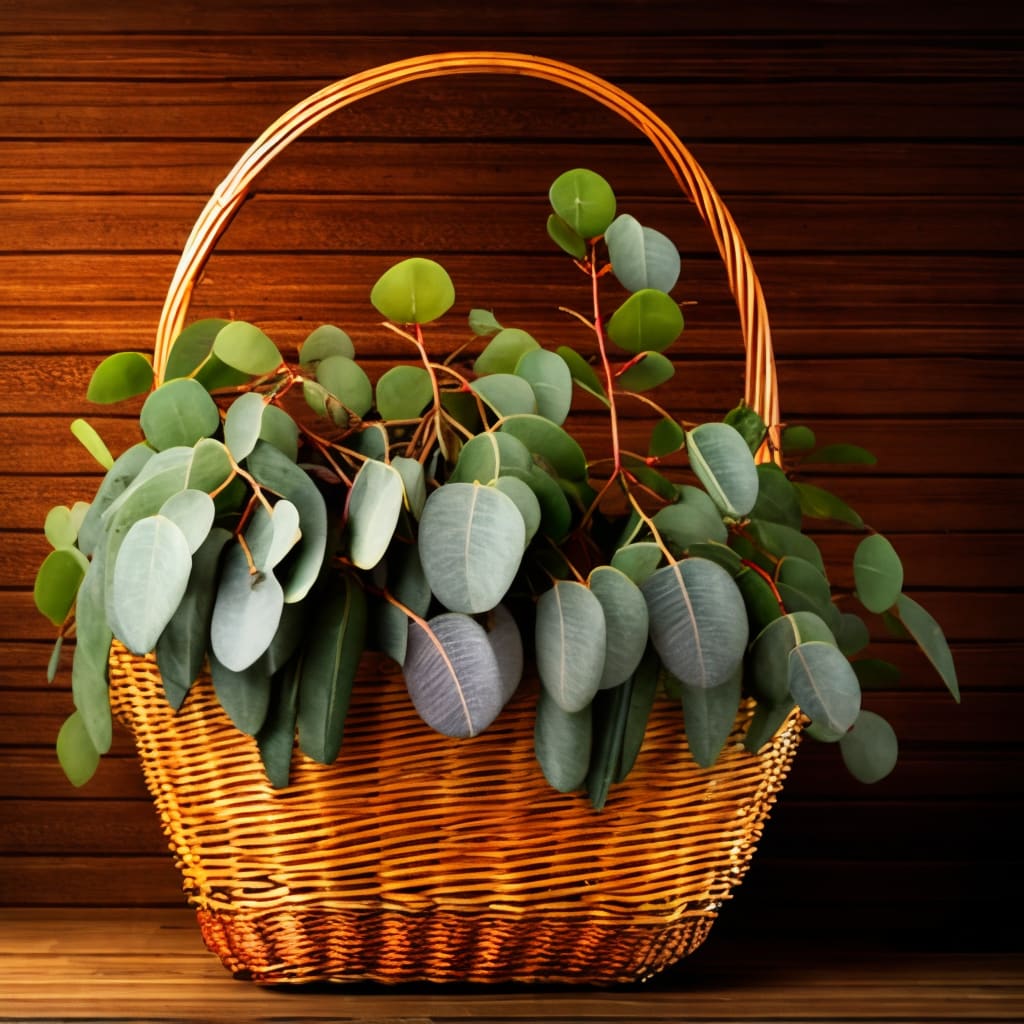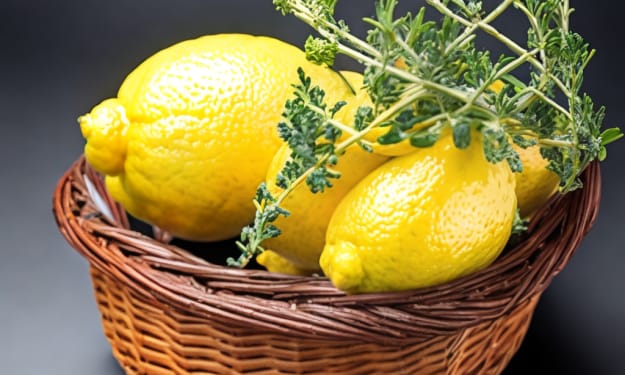
Section 1: Introduction
Eucalyptus, with its distinct aroma and captivating appearance, is a versatile backyard plant that offers numerous benefits. From its nutritional values and potential health benefits to its culinary versatility and global presence in cuisines, eucalyptus holds a prominent place in our culinary and wellness journeys. In this article, we will explore the fascinating world of eucalyptus and uncover its hidden treasures.
Section 2: Nutritional Values and Health Benefits
Eucalyptus leaves are not commonly consumed directly as a food source, but they do possess certain nutritional values and potential health benefits. Rich in essential oils, eucalyptus leaves contain compounds such as eucalyptol, which is known for its antimicrobial properties. Eucalyptus oil is often used in traditional remedies to alleviate respiratory issues, soothe sore throats, and promote clearer breathing. It is also believed to have anti-inflammatory and antioxidant properties.
When used in the form of herbal tea or inhaled as steam, eucalyptus can help relieve nasal congestion and cough symptoms associated with respiratory conditions. However, it is important to note that eucalyptus oil should not be ingested directly, as it can be toxic in large quantities. Always consult a healthcare professional before using eucalyptus for therapeutic purposes.
Section 3: Culinary Versatility
Eucalyptus, with its aromatic leaves and unique flavor profile, offers a remarkable culinary versatility that can add an intriguing twist to various dishes and beverages. Let's delve into the culinary world of eucalyptus and explore its many possibilities.
One of the most common culinary uses of eucalyptus is in the form of infusions. Eucalyptus leaves can be steeped in hot water to create a fragrant and invigorating herbal tea. The infusion releases the essential oils and aromatic compounds from the leaves, resulting in a refreshing beverage with a mild, minty flavor and a subtle hint of sweetness. Eucalyptus tea is often enjoyed on its own or combined with other herbs and spices for added complexity.
Beyond tea, eucalyptus leaves can be used as a flavorful addition to a variety of dishes. When used sparingly, eucalyptus leaves can infuse a subtle hint of mint and citrus into soups, stews, and sauces. They can be added to simmering broths or braising liquids to impart a refreshing and aromatic note to the dish. Eucalyptus leaves can also be used to infuse oils, vinegars, or syrups, creating unique flavor profiles that can elevate dressings, marinades, and desserts.
In baking, eucalyptus leaves can be finely chopped or ground and incorporated into doughs, batters, or infusions. They can add a distinctive flavor to cookies, cakes, and pastries, infusing them with a minty freshness. Eucalyptus leaves can also be used to flavor homemade ice creams, sorbets, or custards, lending a unique and refreshing twist to frozen treats.
The culinary versatility of eucalyptus extends to the world of mixology as well. Eucalyptus leaves can be muddled or used as a garnish in cocktails and mocktails, providing a refreshing and aromatic element. Their minty and citrusy notes complement a wide range of spirits and mixers, adding a unique layer of complexity to the drink. Eucalyptus-infused syrups or tinctures can also be used to create signature beverages that showcase the herb's distinct flavor profile.
Furthermore, eucalyptus leaves can be used as a decorative element in culinary presentations. Their vibrant green color and unique shape make them an attractive addition to salads, cheese platters, or dessert arrangements. The visual appeal of eucalyptus leaves adds a touch of natural elegance to the overall presentation, making the dish visually enticing.
The culinary versatility of eucalyptus opens up a world of possibilities for adventurous cooks, bakers, and mixologists. From infusions and flavorings to baking and mixology, eucalyptus leaves offer a distinctive flavor profile that can elevate a wide range of dishes and beverages. Whether used sparingly as a subtle accent or boldly as a central flavor component, eucalyptus invites culinary exploration and adds a refreshing twist to the dining experience.
So, why not embrace the culinary potential of eucalyptus and experiment with this versatile herb in your own kitchen? Explore its flavors, infuse your dishes, and let the aroma of eucalyptus captivate your senses, taking your culinary creations to new and exciting heights.
Section 4: World of Cuisine
Eucalyptus, with its distinctive aroma and versatile nature, has found its way into the culinary traditions of various cultures around the world. Let's embark on a flavorful journey and explore how eucalyptus adds its unique touch to different cuisines.
In Australian cuisine, eucalyptus holds a special place as a native ingredient. Indigenous communities have long recognized the medicinal properties of eucalyptus and incorporated it into their traditional dishes. Eucalyptus leaves were often used for wrapping and roasting meats, infusing them with a subtle hint of minty flavor. Eucalyptus-infused oils and extracts have also been utilized to add a distinctive touch to sauces and dressings. Today, contemporary Australian chefs are rediscovering the culinary potential of eucalyptus, experimenting with its leaves and oils to create modern interpretations of classic dishes.
Moving across the globe to the Mediterranean region, eucalyptus leaves have made appearances in certain traditional cuisines. In Greece, for instance, eucalyptus leaves are sometimes used to enhance the flavor of grilled meats and seafood. The leaves are placed on hot coals, releasing their aromatic oils and infusing the food with a subtle herbal note. Similarly, in Italy, eucalyptus leaves have been employed in the smoking process for certain cured meats, lending a unique and intriguing flavor profile.
In Southeast Asian cuisine, particularly in Indonesia and Malaysia, eucalyptus leaves are occasionally used in traditional cooking. The leaves are often added to dishes like curries, stews, and rice-based meals, imparting a refreshing herbal taste to the overall flavor profile. The distinct aroma of eucalyptus adds a layer of complexity to these Southeast Asian delicacies.
Furthermore, eucalyptus leaves have even found their way into the world of beverages. In some regions of South America, eucalyptus leaves are used to prepare herbal teas and infusions. The leaves are steeped in hot water, creating a soothing and aromatic beverage known for its refreshing qualities. In addition to tea, eucalyptus leaves are occasionally used as a flavoring agent in cocktails, providing a unique twist to traditional concoctions.
While eucalyptus may not be a ubiquitous ingredient in global cuisines, its occasional use showcases the versatility and aromatic appeal of this fascinating plant. Chefs and culinary enthusiasts around the world are continuously exploring new ways to incorporate eucalyptus into their creations, pushing the boundaries of flavor and creativity.
The presence of eucalyptus in various cuisines serves as a testament to the global fascination with unique flavors and the desire to experiment with unconventional ingredients. Its distinct aroma and herbal undertones add a touch of intrigue to dishes, elevating the overall dining experience. Whether used in traditional recipes or innovative culinary creations, eucalyptus brings a distinct character that sets it apart in the world of cuisine.
The global influence of eucalyptus in different cuisines highlights its versatile nature and aromatic allure. From its role in indigenous Australian cuisine to occasional appearances in Mediterranean, Southeast Asian, and South American dishes, eucalyptus adds a unique flavor profile that captivates the senses. So, why not embrace the global journey of eucalyptus and explore the diverse culinary traditions that have incorporated this intriguing plant into their flavorful tapestry?
Section 5: Conclusion
In conclusion, eucalyptus is a backyard plant that offers not only visual beauty but also potential health benefits and culinary intrigue. While its primary culinary applications revolve around infusions, garnishes, and flavorings, eucalyptus adds a unique and refreshing element to dishes and beverages. Whether enjoyed for its potential therapeutic properties or its distinctive flavor, eucalyptus invites us to explore its hidden treasures and embrace its versatility.





Comments
Pabalatak is not accepting comments at the moment
Want to show your support? Send them a one-off tip.